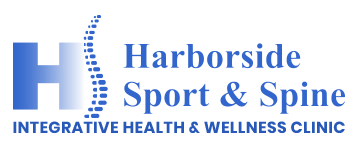Pinched Nerve Treatment Specialist in Jersey City, NJ
An excessive amount of pressure from surrounding tissues, such as muscles, tendons, cartilage, or bones, can cause a pinched nerve. This pressure may result in tingling, discomfort, weakness, or numbness. Patients suffering from a pinched nerve due to a variety of reasons can receive effective treatment from our board-certified Dr. David Sylvester, DC at Harborside Sport & Spine. For more information, contact us or book an appointment online. We serve patients from Jersey City, NJ, and surrounding areas.
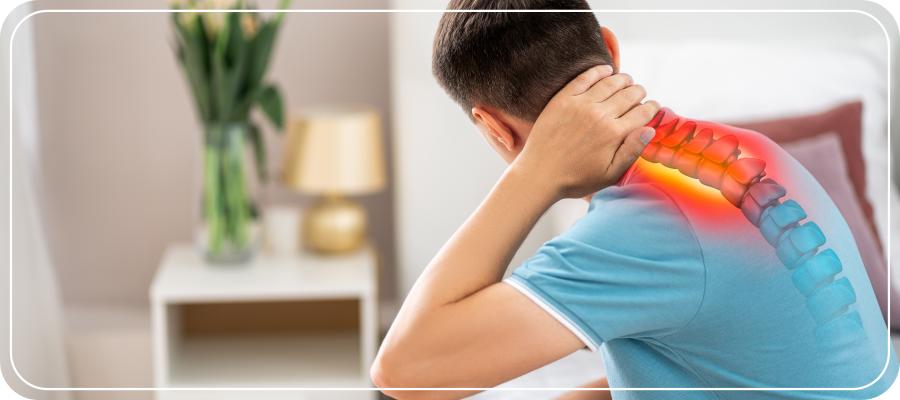

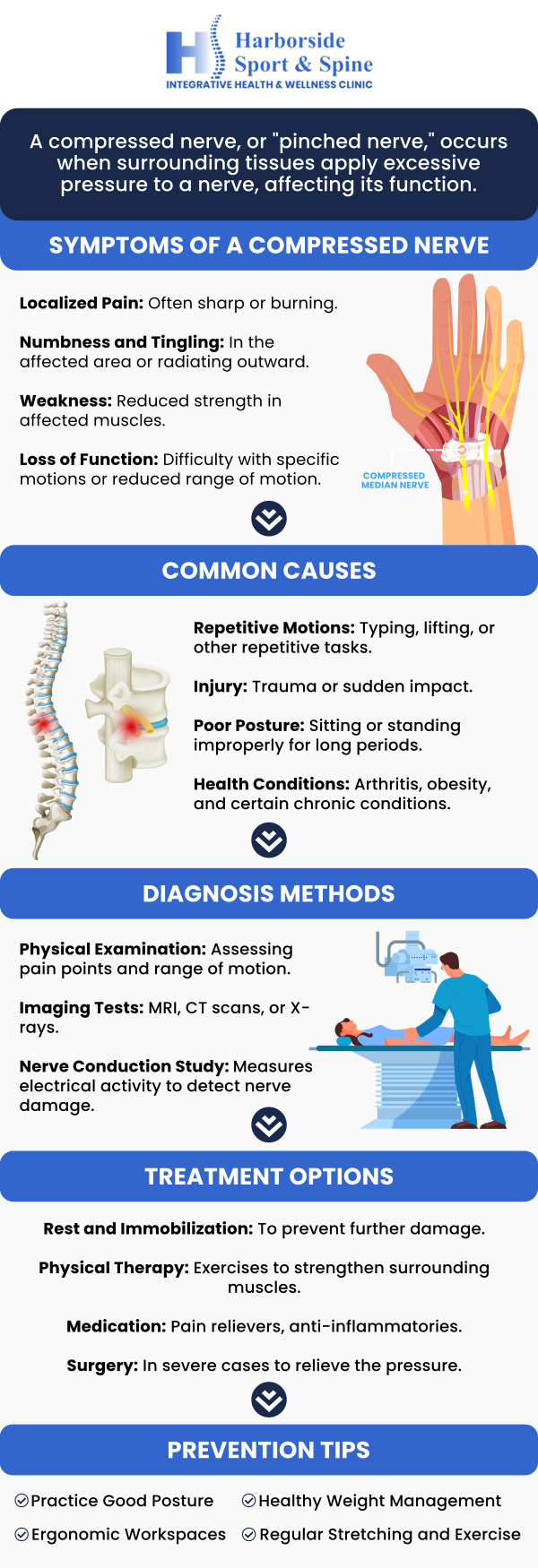
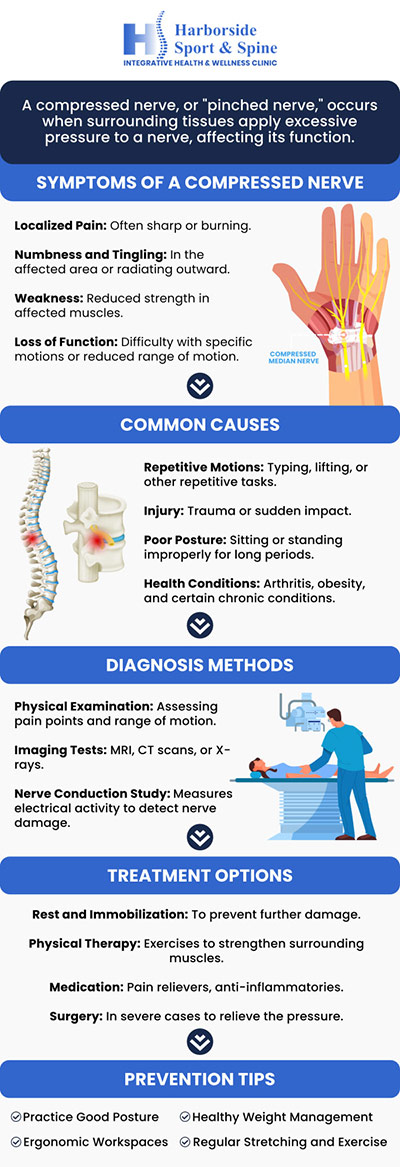
Table of Contents:
How does a pinched nerve feel?
Do pinched nerves go away on their own?
How is a pinched nerve diagnosed?
What is the treatment for a pinched nerve?
How can Dr. David Sylvester relieve your pinched nerve pain and restore proper function?
A pinched nerve can create a range of sensations depending on the area and seriousness of the compression. Common symptoms include sharp or shooting pain that may feel like an electric shock. The pain can be in a specific area or radiated along the nerve pathway, causing discomfort in adjacent areas. Additionally, individuals may experience tingling or numbness in the affected area, often described as a pins-and-needles sensation. This can end up causing a sensation loss or a feeling of weakness in the affected limb or muscle group. Some individuals may also report a burning or prickling sensation. Symptoms often worsen with movement, certain positions, or activities that place additional pressure on the affected nerve. It is important to consult a healthcare professional for a proper diagnosis and the right treatment options if you are worried about a pinched nerve. Prompt medical attention can help alleviate symptoms and prevent further complications.
Pinched nerves, although sometimes resolving on their own, may require professional intervention in more severe or persistent cases. While mild cases can often improve with rest and self-care measures, such as applying ice or heat, more serious situations may necessitate medical treatment. Treatment options may include physical therapy, medications for pain and inflammation, corticosteroid injections, or even surgery in rare instances. Physical therapy can help alleviate compression by stretching and strengthening the muscles surrounding the affected nerve, while medications can provide pain relief and reduce inflammation. Corticosteroid injections, given by a healthcare professional, help to reduce inflammation and ease symptoms. Surgery may be required if conservative treatment methods fail to provide relief or if there is an underlying structural issue that needs to be addressed, such as a herniated disc. It is imperative to meet with a healthcare professional for an accurate diagnosis, and appropriate treatment plan, and to prevent potential complications or chronic issues associated with pinched nerves.
A pinched nerve can be diagnosed through a comprehensive evaluation that includes a combination of physical examination, medical history review, and diagnostic tests. During the exam, a healthcare professional will go over your symptoms, such as pain, numbness, tingling, or weakness, and perform various neurological tests to evaluate reflexes, muscle strength, and sensation in the affected area. They will also discuss your medical history, including any previous injuries, chronic conditions, or activities that may have contributed to the development of a pinched nerve. Diagnostic tests are often utilized to confirm the diagnosis and identify the underlying cause of nerve compression. Imaging studies, including magnetic resonance imaging (MRI) or computed tomography (CT) scans, give detailed pictures of the spine, joints, or other structures to detect the presence of herniated discs, bone spurs, or other abnormalities. Nerve conduction studies and electromyography (EMG) could be conducted to evaluate the electrical activity and functioning of the nerves. These tests measure the speed and strength of electrical signals transmitted by the nerves, helping to localize the site of nerve compression and assess nerve function. By integrating all these components, healthcare professionals can make a correct diagnosis and come up with an appropriate treatment plan unique to the individual’s specific needs.
The treatment for a pinched nerve is based on the seriousness and underlying reasoning of the condition. Initially, conservative measures may be recommended, such as rest, activity modification, and avoiding repetitive movements that exacerbate symptoms. Nonsteroidal anti-inflammatory drugs (NSAIDs) or pain relievers may be prescribed to alleviate pain and inflammation. Physical therapy can be beneficial for exercises, stretches, and techniques to improve posture, strengthen muscles, and relieve pressure on the affected nerve.
In some instances, a brace or splint could be advised to provide support and immobilization. If these measures don’t provide sufficient relief, corticosteroid injections may be considered to reduce inflammation and alleviate symptoms. Surgery may be necessary in more severe cases with persistent or worsening symptoms, where decompression of the nerve is required, such as in cases of herniated discs or bone spurs pressing on the nerve. The treatment is unique to the individual’s specific condition and is often determined in consultation with a healthcare professional.
A pinched nerve can cause sharp, radiating pain, numbness, tingling, or weakness—often disrupting your daily life. At Harborside Sport & Spine, Dr. David Sylvester, DC, specializes in identifying and treating pinched nerves through safe, non-invasive methods. He begins with a comprehensive assessment to locate the source of nerve compression, whether it’s in the neck, lower back, or extremities.
Dr. Sylvester uses targeted chiropractic adjustments, spinal decompression, soft tissue therapy, and corrective exercises to relieve pressure on the affected nerve and promote healing. His approach also focuses on improving posture and spinal alignment to prevent future nerve irritation. At Harborside Sport & Spine, care is tailored to your specific symptoms and health goals, offering long-term relief without the need for medication or surgery. For more information, contact us or book an appointment online. We serve patients from Jersey City NJ, Hoboken NJ, Weehawken NJ, West New York NJ, Guttenberg NJ, Secaucus NJ, Harrison NJ, Kearny NJ, Newark NJ, Belleville NJ, Lyndhurst NJ, East Orange NJ, and Elizabeth NJ.
Check Out Our 5 Star Reviews

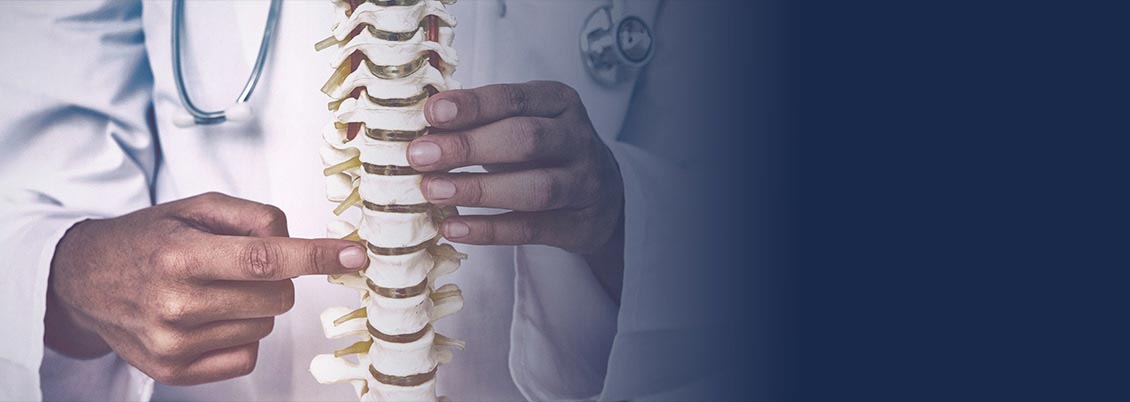
Chiropractic and Physical Therapy Services
▸ Chiropractic
▸ Physical Therapy
▸ Massage Therapy
▸ Acupuncture
▸ Spinal Decompression
▸ Prenatal Chiropractor
▸ Ear Infections
▸ Foot Pain
▸ Headaches
▸ Scoliosis
▸ Slipped Disc
▸ Sprained Ankles
▸ Stress
▸ Frozen Shoulder
▸ Osteoporosis
▸ Shoulder Pain
